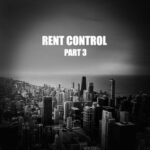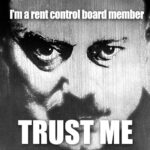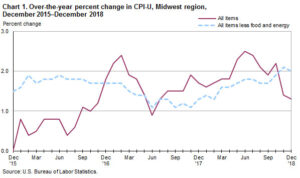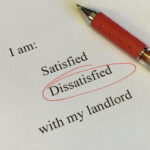 What’s the Board going to be up to?
What’s the Board going to be up to?
Now that State Representative Mary E. Flowers has re-introduced the Rent Control Act (this time in the State House of Representatives), it is important that we continue our breakdown of and commentary on this divisive and likely destructive proposed legislation. I will no longer analyze the amended text of last years Senate Bill 3512 but will now be reviewing the proposed HB2192. In this third part of our review of this law seeking to bring chaos to landlord-tenant jurisprudence in Illinois, we will break down section 25 of the Act that explains the duties of the Board.
First, let’s remember that the Definitions section of the Act (Section 15) defines the “Board ” as “a regional rent control board established by Section 20 of this Act.” Section 20, as we know from part two of this series, breaks Illinois into six regions which are each controlled by a board consisting of five tenants or tenant-friendly board members and two landlord board members (the members are 5-2 in favor of the tenants). On to Section 25 which gives the Board eight basic duties.
Duty 1: A board must provide support to and oversight of the units of local government within its region in implementing the requirements of this Act. It looks like these boards will be a part of the government hierarchy over and above the local municipalities. If a town doesn’t like rent control, they won’t have the CHOICE to implement or not implement the law.
Duty 2: A board must establish regulations as provided in Section 35 and may establish other regulations and penalties applicable within its region and consistent with this Act and provide for enforcement of those regulations and penalties. A board may enact regulations that are specific to a particular jurisdiction or area within its region. All regulations must be approved by a majority of the members voting at a board meeting. First, I’ll point out that Section 35 of the Act sets forth the “rent stabilization regulations” (ie. the meat of the rent control law), but we will look at those in a future installment, so let’s not put the cart in front of the horse. In addition to establishing those rules contained in Section 35, the boards will have additional power to enact regulations “specific to a particular jurisdiction or area within its region”, so it sounds like the rent control board for northeastern Illinois could establish rules specific to Cook County or to Palatine if they chose to. Whatever happened to the law being applied equally? I guess that goes out the window when we are seeking affordable housing which is being held up as an end goal regardless of the means or the landlords that need to get trampled to get there. Further, all of these surely great regulations will need to be approved by a majority of board members. Remember, the only way the landlords will have a majority on the board is if four of the board’s tenant-side members come down with the flu on the day of the big meeting!
 Duty 3: A board must monitor and compile publicly accessible data on rents and evictions within its region. A board may provide for data collection from units of local government, landlords, and tenants. This is getting good! As you know from part two of this series, the rules governing the composition of the board will certainly depend on collecting some data. But how much is the questions? Remember, three of our esteemed board members will come from tenants whose households earn less than 120% of the area median income. How will we know what the median income in the area is? In addition, there are other parts of the law (like the aforementioned provisions of section 35 that require us to know what are 10% of the landlord’s rent proceeds – again, putting that cart in front of the horse). How in the world will the board get this information? I’m guessing (just a guess) that all leases will have to be filed or registered with the rent control board or some other department of the government. That means a landlord’s financial information (see this for more on the government wanting this kind of information) and business terms and techniques will also be available to the government. Talk about big brother.
Duty 3: A board must monitor and compile publicly accessible data on rents and evictions within its region. A board may provide for data collection from units of local government, landlords, and tenants. This is getting good! As you know from part two of this series, the rules governing the composition of the board will certainly depend on collecting some data. But how much is the questions? Remember, three of our esteemed board members will come from tenants whose households earn less than 120% of the area median income. How will we know what the median income in the area is? In addition, there are other parts of the law (like the aforementioned provisions of section 35 that require us to know what are 10% of the landlord’s rent proceeds – again, putting that cart in front of the horse). How in the world will the board get this information? I’m guessing (just a guess) that all leases will have to be filed or registered with the rent control board or some other department of the government. That means a landlord’s financial information (see this for more on the government wanting this kind of information) and business terms and techniques will also be available to the government. Talk about big brother.
Duty 4: A board must at least annually publish the median area rent for dwelling units with certain numbers of bedrooms within each county of its region or other unit of local government within its region as the board may decide. Here we go again. Where will they get this data? It sounds like landlords will have to report to the government how many bedrooms they have or will have to at least acknowledge having over a certain number of bedrooms. So, the board will publish the “median area rent”. This is trending to become something akin to price-fixing (it sure isn’t a free market economy).
Duty 5 No more than once every 12 months, a board must set the rent stabilization rate for each county within its region or other units of local government within each county. A board may provide separate rates for tenants who are over 65 years of age, tenants who are persons with a disability, or other subclasses of tenants that a board may from time to time define. Woah. Here we go. First, the board will set the annual limit on the rate of increase of rents. They are calling it “stabilization”. Who doesn’t like stability, right? Why call it rent control (you know, control by the government. That’s yucky but stabilization sounds fun and good!). Then, they go further, in addition to limiting increases, there can be a special, separate limit on rate increases for seniors and the disabled. So, we now are creating at least THREE classes of tenants (those who are subject to the “regular” rent control limit, those who are seniors, and those who are disabled). Hey, wait a minute. I thought we were supposed to treat everyone the same. I also thought that we were not supposed to inquire into someone’s disability status. Let me be clear that I am not picking on the elderly or the disabled here. I’m indicating that we have a set of laws that have, over the years, taught landlords to respect people regardless or age and regardless of disability and now we are going to get back to making these factors issues in the process. That doesn’t make sense. Worse yet, it looks like the boards can make special rules for any old “subclasses of tenants” as the board might “from time to time define”. What? This is giving a great deal of POWER to these boards. What keeps these boards in check? Remember, they are comprised of five tenant friendly votes and two landlord votes. They seem to be given free reign to impose all kinds of nonsense on landlords.
 Duty 6: A board must select a consumer benchmark to use when calculating the rent stabilization rate. This one is procedural. A board might choose a benchmark like the consumer price index. That is, they could peg the rent control rate to, say, an increase in the consumer price index. If the index goes up two percent, the rent control rate cap might be a 2% increase in rent for that year. We’ll talk more about that in future installments.
Duty 6: A board must select a consumer benchmark to use when calculating the rent stabilization rate. This one is procedural. A board might choose a benchmark like the consumer price index. That is, they could peg the rent control rate to, say, an increase in the consumer price index. If the index goes up two percent, the rent control rate cap might be a 2% increase in rent for that year. We’ll talk more about that in future installments.
Duty 7: A board shall establish a rent control registration fee schedule that results in the collection of annual fees from landlords for each dwelling unit in the region over which the board exercises oversight. The rent control registration fee shall be used solely to fund activities under this Act. A board must maintain and update a publicly available online list of the current payment status of each dwelling unit subject to the board’s oversight. The publicly available list shall include the name of the landlord responsible for the dwelling unit. I somehow feel like I’d like to be a rent control board member. These folks sure seem like they’re going to have some massive power. So, here, the rubber meets the road. It looks like this whole behemoth is going to cost landlords some MONEY! How much? Well, when they say a “fee schedule”, it sounds like it is possible that it will be more complex than a flat one size fits all fee. What we do know, is that landlords will be paying an annual fee to the rent control board FOR EACH DWELLING UNIT in the region. That sounds to me like a six flat will need to pay six fees. In addition, (landlords who prefer privacy won’t like this one), there will be a publicly available list indicating the name of the landlord responsible for the dwelling unit. George Orwell is turning over in his grave right now.
 Duty 8: A board shall establish a complaint collection system that allows tenants and landlords to submit written or verbal complaints to the board concerning rents, the affordability and quality of dwelling units subject to the board’s oversight, and discriminatory rental practices by landlords subject to the board’s oversight. The board shall not solicit, maintain, or report information concerning unlawful behavior by a landlord or tenant not related to the rent of a dwelling unit, including drug use or possession, immigration status, or domestic relations. A board is not required to create an adjudicatory system to resolve complaints submitted to the board, but shall use information submitted in landlord and tenant complaints through this process to improve and inform its activities under this Act. If Chris Farley were alive, surely he would emote the phrase “Holy Schnikes”. Is this process seeming to be pretty complex? Is this rent control board going to be a behemoth? Is it going to be chaos? It sure looks like it. So, the esteemed board will create a complaint collection system. This system will be open to landlords and to tenants who can make COMPLAINTS to the board, in writing or verbally, concerning: (1) rents, (2) the affordability of the dwelling unit, (3) the QUALITY of the dwelling unit, and (4) discriminatory practices by landlords. I thought the board’s job was to establish and monitor rent control. This is something entirely different. This is entirely more. This is entirely nonsense. (Also, no landlords will be calling the board to report on these things). So, tenants will get to call the board to complain about the landlords discriminatory practices? A landlord in Chicago is subject to Chicago’s fair housing law, Cook County’s fair housing law, the state’s fair housing law, and Federal fair housing law. There are places that tenants can go already to enforce their rights if they feel like they are being illegally discriminated against. Now, the rent control board. A board populated by five tenants and two landlords will be in charge. Wow. just wow. What won’t be fodder for the rent control board? Well, landlords won’t be allowed to call in about their tenant’s drug use, selling drugs on the premises, fights, or other criminal activity. That’s out. The board doesn’t care about that. The last sentence is a doozy: “A board is not required to create an adjudicatory system to resolve complaints submitted to the board, but shall use information submitted in landlord and tenant complaints through this process to improve and inform its activities under this Act.” So, by implication, while the board is NOT REQUIRED to “create an adjudicatory system”, it sure look like they can if they want to. What in the heck will landlord-tenant law look like if this bill is passed?
Duty 8: A board shall establish a complaint collection system that allows tenants and landlords to submit written or verbal complaints to the board concerning rents, the affordability and quality of dwelling units subject to the board’s oversight, and discriminatory rental practices by landlords subject to the board’s oversight. The board shall not solicit, maintain, or report information concerning unlawful behavior by a landlord or tenant not related to the rent of a dwelling unit, including drug use or possession, immigration status, or domestic relations. A board is not required to create an adjudicatory system to resolve complaints submitted to the board, but shall use information submitted in landlord and tenant complaints through this process to improve and inform its activities under this Act. If Chris Farley were alive, surely he would emote the phrase “Holy Schnikes”. Is this process seeming to be pretty complex? Is this rent control board going to be a behemoth? Is it going to be chaos? It sure looks like it. So, the esteemed board will create a complaint collection system. This system will be open to landlords and to tenants who can make COMPLAINTS to the board, in writing or verbally, concerning: (1) rents, (2) the affordability of the dwelling unit, (3) the QUALITY of the dwelling unit, and (4) discriminatory practices by landlords. I thought the board’s job was to establish and monitor rent control. This is something entirely different. This is entirely more. This is entirely nonsense. (Also, no landlords will be calling the board to report on these things). So, tenants will get to call the board to complain about the landlords discriminatory practices? A landlord in Chicago is subject to Chicago’s fair housing law, Cook County’s fair housing law, the state’s fair housing law, and Federal fair housing law. There are places that tenants can go already to enforce their rights if they feel like they are being illegally discriminated against. Now, the rent control board. A board populated by five tenants and two landlords will be in charge. Wow. just wow. What won’t be fodder for the rent control board? Well, landlords won’t be allowed to call in about their tenant’s drug use, selling drugs on the premises, fights, or other criminal activity. That’s out. The board doesn’t care about that. The last sentence is a doozy: “A board is not required to create an adjudicatory system to resolve complaints submitted to the board, but shall use information submitted in landlord and tenant complaints through this process to improve and inform its activities under this Act.” So, by implication, while the board is NOT REQUIRED to “create an adjudicatory system”, it sure look like they can if they want to. What in the heck will landlord-tenant law look like if this bill is passed?
I can speculate that it will be a tenant-driven system where landlords are regulated, have to turn over massive amounts of financial information, have to pay lots of fees, and are subject to a rent control board that can take action against them for all sorts of things that have nothing to do with rent control. This law is expansive. It has, as we discussed in part one of this series, a world-view about human rights and that world-view will require property owners to be servants to their tenants. Landlords need to take a firm stance against this law. Get the word out folks.
